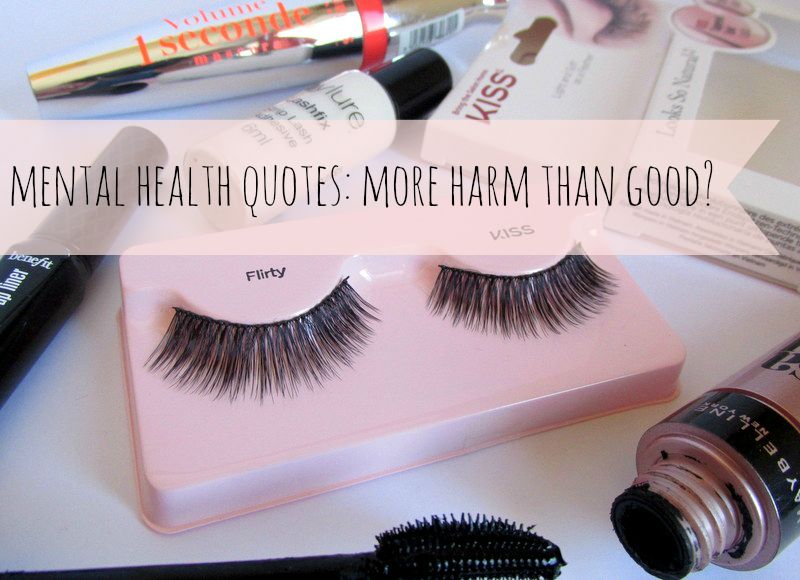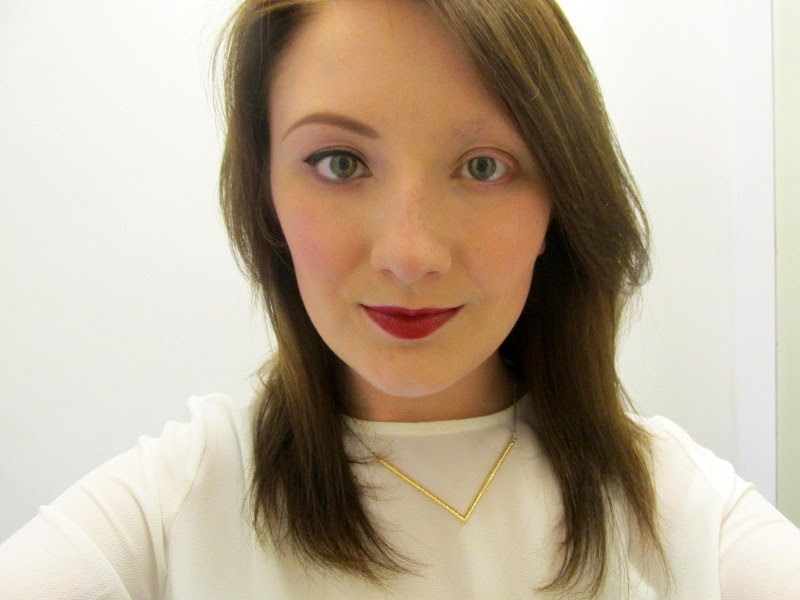Eyebrow Microblading For Trichotillomania: One Year On
There are two beauty-related moments in my life that have completely changed my 19 year relationship with trichotillomania. The first was the discovery of false eyelashes aged 15; the second was having my eyebrows tattooed in January 2016 by Sian Dellar. It sounds sad, but these beauty epiphanies have completely changed my life for the better. Those of you who have trichotillomania might understand this; those moments that make you feel as though there is light within the murkiness of the disorder, that provides a glimpse of hope, that makes your life with hair loss tons easier. For me, microblading was one of these profound moments. I finally had brows. Not only that, but they were brows that looked completely natural and that I didn't have to worry about. One year down the line, they are still there (although much more faded) and as I look to my top up appointment, I've been thinking about the impact this procedure has had on my life.
BFRB Awareness Week: What Does It Actually Mean?
In support of BFRB awareness week, I thought I'd go into the more medical side of things for once and give an insight into the category in which trichotillomania is placed. BFRB stands for 'body-focused repetitive behaviours' and broadly covers all disorders which display these characteristics. Rather than mild habits or 'tics' (such as picking your nails every now and then), these disorders focus on touching the body and/or hair in ways which are incredibly damaging; they have more extreme consequences than the mannerisms which people are most used to seeing. Rather than just being habits, there is a deeply complex emotional root in these BFRBs which needs treating in some way. The emotional trauma and physical damage these disorders can cause make them something dangerous to undermine and hurtful to minimise the severity of.
 |
| Image Source |
Labels:
awareness,
bfrb,
dermotillomania,
disorder,
hair loss,
mental health,
therapy,
trichotillomania
7 Ways To Treat Trichotillomania (And Make Your Life A Little Easier)
The tiniest amount of research online will enlighten you to the sad fact that, currently, there is no cure for trichotillomania. It may be disheartening to think that the cycle of pulling will seemingly never end, and, trust me, I've torn myself up over the idea of being stuck with this horrid disorder for life. However, hope is not all lost. Despite there being no magic wand you can wave and make those urges to pull instantly disappear, there are numerous ways to help control those feelings. Many people have wonderful success stories of going pull-free, so don't think that it's totally unachievable. So, if you're looking for potential ways to treat, stop and control trichotillomania, this post is for you.
Labels:
advice,
anxiety,
depression,
disorder,
health,
medication,
mental health,
therapy,
trichotillomania
Trichotillomania Update (And Why It's OK To Not Be OK)
I did something bad. I was doing so well, had a full set of lashes, and then received some bad news. I cried, my heart broke, and my eyelashes were destroyed. All of that time and hard work trying to grow them back through, and my happiness at being able to wear mascara and ditch the false lashes...all disappeared in one ten minute splurge. I hated myself for ruining my eyelashes yet again, for forcing myself back into the routine of covering up the ugliness, and once those ten minutes passed I was filled with utter disappointment, guilt, regret and self-loathing. I used some bad news as an excuse to pull out my hair, but was left feeling heaps worse than before.
Labels:
disorder,
eyelashes,
mental health,
trichotillomania
Start Seeing The Positives In Your Mental Health Battle
Mental health illnesses can be completely debilitating. They can sneak up on you when you least expect them and turn your world upside down. They are powerful, far more powerful than many people dare to realise. But suffering doesn't have to be a negative experience. Even the word 'suffering' itself has wholly negative connotations; that's simply the meaning of the word. So how can suffering ever be positive? Rather than seeing yourself as a victim of a mental health illness or disorder, I find it far healthier to view it either as a battle (which you positively have a chance of winning) or as an integral part of yourself (alongside the mantra of loving yourself, flaws included). If you are struggling with any form of mental health issues at the moment, hopefully this post will demonstrate that it can be flipped from that default 'suffering' outlook, to something far more grounded, positive and beneficial to you.
Labels:
attitude,
disorder,
illness,
mental health,
positive,
trichotillomania,
wellbeing
Hardships of Trichotillomania: Not Having Eyebrows Is Actually Quite Tough
Despite the fact that I have pulled out my eyelashes for the past 18 years of my life (I am 21), I have found that my eyebrow pulling has physically affected the most. Maybe it a case of having adjusted to my long-term struggle with my eyelashes, compared to still having to adapt to my 5 year struggle with eyebrows. Either way, I have found that eyelash-pulling has been far, far easier to cover up than eyebrow hair loss, which is one of the main reasons why I see it as my main nemesis. It is so swiftly glossed over by most people who have never suffered from hair loss, and while I usually focus on the ignorance surrounding the emotional impact of hair loss, today the physical effects get their time in the limelight.
Labels:
brows,
disorder,
eyebrows,
hair loss,
trichotillomania
Why The 'Attention-Seeking' Label Needs To Stop Within Mental Health
If you ask people why they don't talk about their mental health, their silence will be for one reason: fear of their illness being fobbed off by others. The stigma that has been created around mental health illness never originated from the sufferers themselves, but rather their peers telling them that they are being silly, overexaggerating and that they should simple 'get over it'. Because mental health illnesses are invisible in comparison to, say, a broken arm, there is always an air of doubt whenever you start a discussion around it. Supposedly, there is no proof. How can we believe these people when they have nothing to show for their illness? It is this attitude which leads to may sufferers being called attention-seekers, and this approach needs to stop.
Labels:
disorder,
illness,
mental health,
opinion,
trichotillomania
Why Being Open About Trichotillomania Was The Best Thing I've Ever Done
You may (or may not) be aware that I re-started this site last year in order to not only bring some focus to my life, but also to openly discuss a mental health disorder from which I have suffered for 18 years- trichotillomania. For all this time, the hair-pulling impulse disorder had taken over my life, leaving me bald, ashamed and struggling with an incredibly low self-esteem. Whilst writing about the illness has by no means cured me (I still go through good and bad patches like all other sufferers), it has opened up a new positive relationship with my disorder which I had never before experienced. Here's how.
My Issue With Motivational Mental Health Quotes
We all need a little encouragement from time to time. Whether it be a little pep-talk about getting that essay done, or a bigger kick up the bum telling you that you are strong and will beat depression, there's always a motivational saying floating around social media that'll give you that push along your way. I have no issue with most; I actually think a lot of them are a great way of inspiring others and helping your peers to be the best they can be. What I have an issue with is the sayings usually linked with mental health; more specifically, the ones which encourage a detachment from the disorder or illness. This post is just a little ramble about how 'motivational sayings' could potentially do more harm than good.
Labels:
disorder,
life,
mental health,
motivation,
opinion,
trichotillomania
Dispelling the Myths: What Actually IS Trichotillomania?
I've written quite a few posts suggesting products to help cover signs of trichotillomania, from false lashes to eyebrow products, and also ones about self-confidence issues that come with battling the disorder. However, except for my very first post on the issue, I have never really gone into detail about what it is, or why we do it. Having been chatting with a few sufferers recently, I have found that there is still HUGE misunderstanding amongst sufferers, professionals, friends and family. The best way to break down any stigmas about mental health disorders is to talk openly, educate and promote understanding. If people are aware of the disorder, the ins and outs and the effects of it, the world becomes a far easier place for sufferers, allowing them to develop a level of acceptance and confidence when living with trichotillomania. So, lets start dispelling all the myths around it and promote a real understanding of what trich actually is...
Trichotillomania: Things We're Sick Of Hearing
As with many other illnesses which few people have heard of or know much about, ignorance and blase comments come with the everyday struggles of having trichotillomania. Sometimes, these little hurtful comments can be the most difficult aspect of the illness to deal with; an aspect which you have no control over. Learning to deal with the frustrating comments and questions from friends, family and strangers is just another stage of coping with trichotillomania in your life. Here are some examples of things which have been said to me in the past- I would love to hear some of yours too!
Subscribe to:
Posts (Atom)
©
Pretty and Polished. All rights reserved.


















